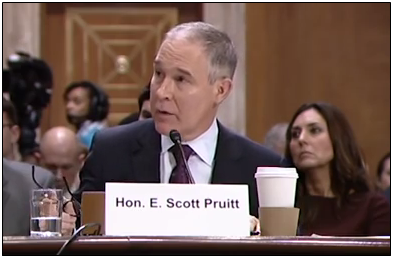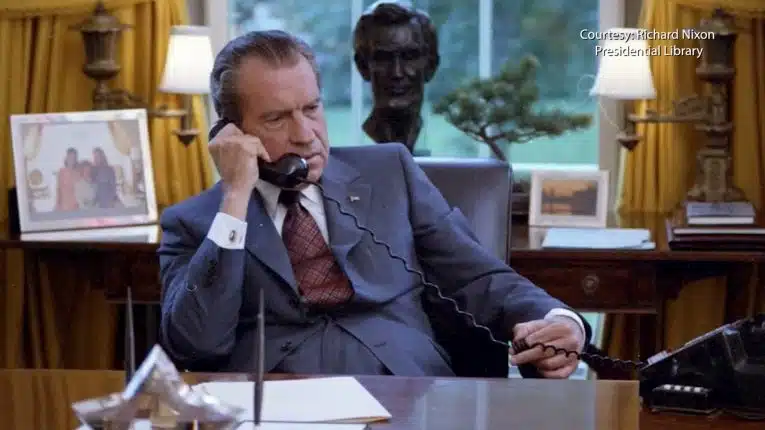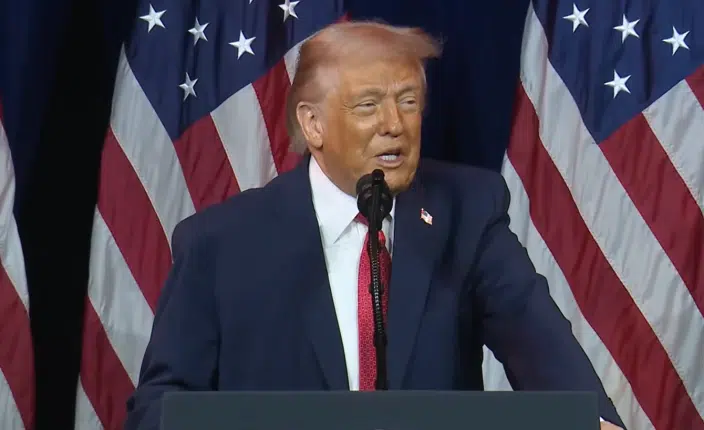By Natalia Castro
From his nomination to his resignation, Environmental Protection Agency (EPA) Administrator Scott Pruitt was under constant attack by the left. Whether you believe the countless accusation the left threw at the Administrator or not, one thing is clear: just because Pruitt is gone, does not mean the EPA can stop the massive regulator rollback they have embarked upon with Pruitt as their leader. Pruitt helped size back one of President Obama’s most intrusive and overstepping agencies, whoever President Trump appoints as the new EPA Administrator must continue on this course no matter what the left throws at them.
The left repeatedly scrutinized Administrator Pruitt’s security expenses, despite the fact that those expenses were necessary considering the abundance of threats Pruitt began receiving after taking his position.
As Pruitt did his job better and better, the attacks got stronger and stronger.
In his first year in office, Pruitt’s EPA began receiving public comments to replace the Clean Power Plan and blocked the implementation of the Waters of the U.S. rule. These were two rules, both enacted under the Obama administration, dramatically expanded the federal government’s control over local waterways and imposed impossible emissions regulations on businesses.
Under Pruitt, the EPA also ended the practice of sue and settle lawsuits as a means of broadening the EPA’s authority. Previously, an environmental group would sue the EPA for not protecting the environment in some way, and rather than fighting the case; the EPA would settle. This effectively expanded the EPA’s scope of authority through litigation.
Sue and settle lawsuits allow the judicial branch and the executive branch to work together to sidestep the authority of the legislative branch, a violation of Article 1 of the Constitution.
With a directive signed in November 2017, Pruitt required the Agency to publish notice to the public whenever they receive an intention to sue, as well as publish complaints against environmental law and a list of all consent decrees and settlement agreements that govern Agency actions within 30 days.
During the Obama Administration, the EPA utilized the Clean Air Act to settle 137 legal cases, as compared to the Bush era EPA which only settled 66.
Through promoting transparency and Article 1 accountability, Pruitt took significant steps to rein in the growing agency so businesses and individuals can thrive without government intervention.
Internally, Pruitt’s EPA has also implemented a new, agency-wide EPA Lean Management System (ELMS).
Until this year, the EPA did not track the time it took to complete permit requests, did not track legal deadlines set by Congress, did not measure correction and compliance rates following known violations of agency guidelines, and did not measure the number of drinking water systems out of compliance with EPA rules.
Essentially, EPA management has had little to no accountability. As Pruitt has explained, this caused vast inconsistencies between regional branches, created a disengaged workforce, and fueled mismanagement.
ELMS universalizes agency standards by creating clear metrics for success across all EPA programs and regional offices, integrates monthly business reviews for all senior leaders to review their office’s performance, and seeks to eliminate waste in each agency.
The newly created Office of Continuous Improvement will oversee the implementation of ELMS in 80 percent of agency units by September 30, 2020.
EPA Administrator Pruitt led the charge in rolling back an out of control agency that was drunk with power under the Obama Administration. Even without Pruitt, the agency must continue the reforms Pruitt began. President Trump must tell his next nominee to expect a war from the left because Pruitt only lost his for being extremely effective at his job.
Natalia Castro is a contributing editor at Americans for Limited Government.







